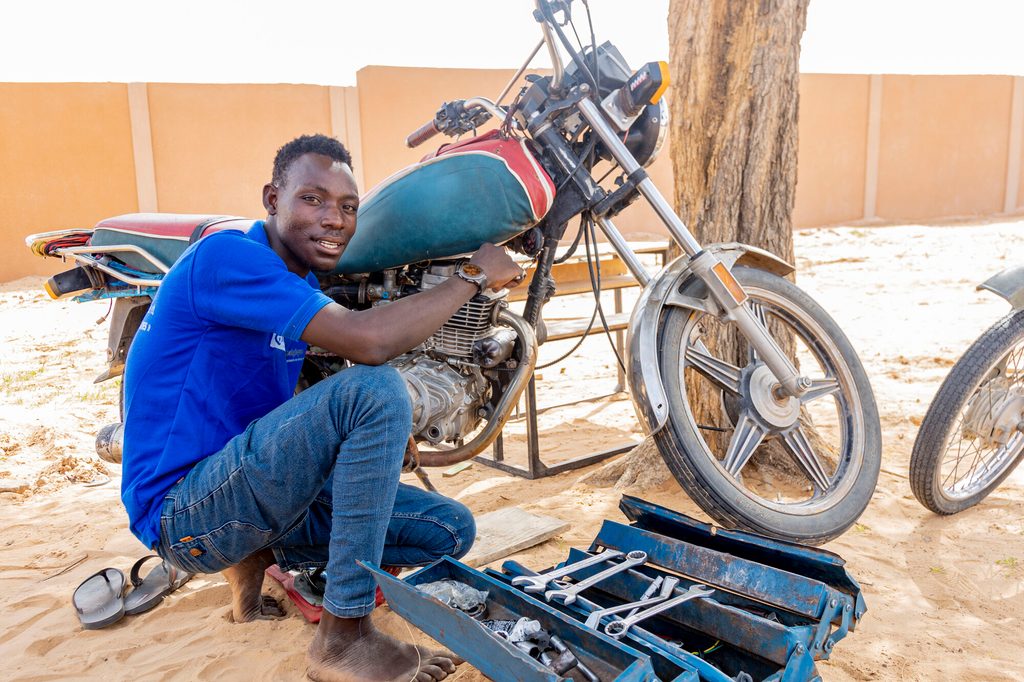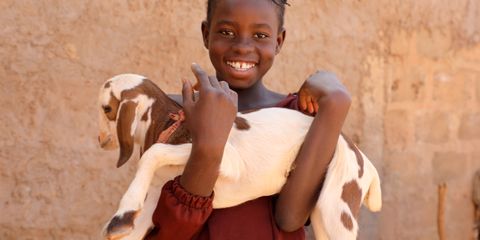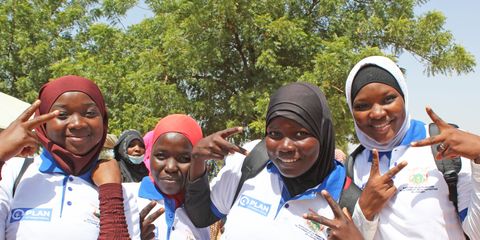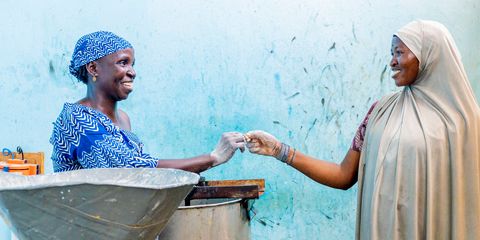After losing his left arm in an accident, Lawali had to drop out of school. Despite his disability, he will soon be able to repair motorbikes with support from Plan International.
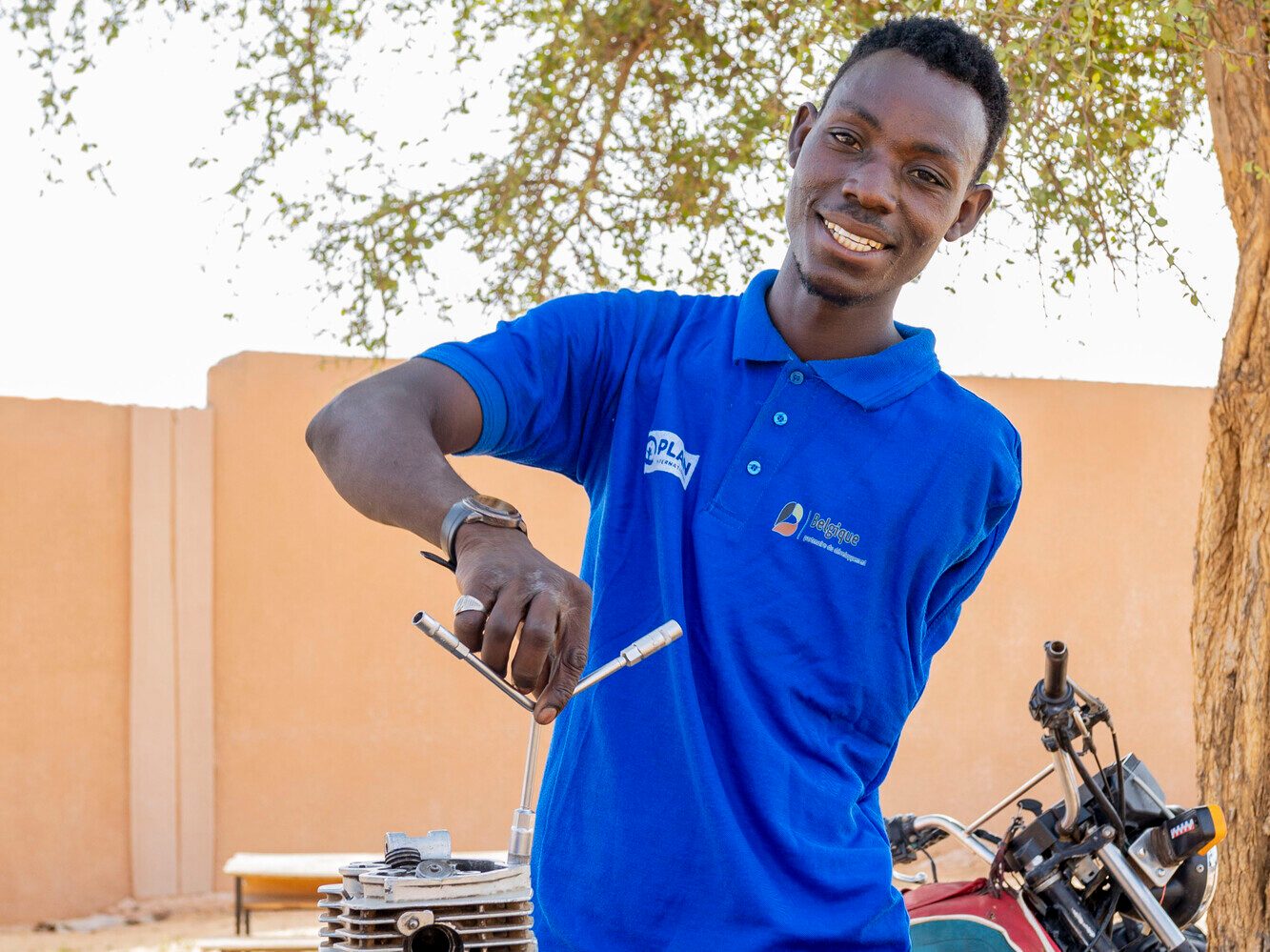
After losing his left arm in a childhood accident, 24-year-old Lawali had to drop out of education. “I left school at the age of 4 because my disability prevented me from studying, my school was not adapted to accommodate children with disabilities,” he explains.
Vocational training brings opportunities
Like many young men in Niger, Lawali decided to migrate to Libya in search of better life opportunities, but ended up begging on the streets so decided to return to his village in Maradi region. Looking for a way to earn an income, he heard about a vocational training centre situated 5km from his home.
“I decided to stop begging and learn motorbike mechanics. In my village, people have to walk for miles to repair their motorcycles. With this training, I’ll be able to repair motorbikes in my community and make a bit of money,” explains Lawali.
“This training changed my life. My dream is to help other children with disabilities.”
Lawali
Unemployment on the rise in Niger
In Niger, young people face significant difficulties accessing decent economic opportunities. Unemployment has risen sharply over the past 10 years, forcing young people into low-paid work with no social protection. Some 69% of young people in Niger are neither in school, nor in training or in employment (World Bank, April 2023). For young people with disabilities, the barriers are even greater.
The loss of livelihoods and social cohesion is putting a growing number of young people at risk, who instead choose to migrate to other countries to seek work, or adopt negative coping mechanisms such as begging, substance abuse and criminal behaviour.
Work opportunities for youth
To support young people into employment, Plan International’s youth resilience project is providing vocational training and access to sustainable and decent work opportunities for young people in Maradi region.
“This training changed my life. People with disabilities are often unemployed. Thanks to this job training, people give me more importance. I feel part of a group. I don’t feel ignored anymore,” says Lawali. “Before the training, I knew nothing about mechanics. It is thanks to this course that I now know how to dismantle motorcycle parts and repair them.”
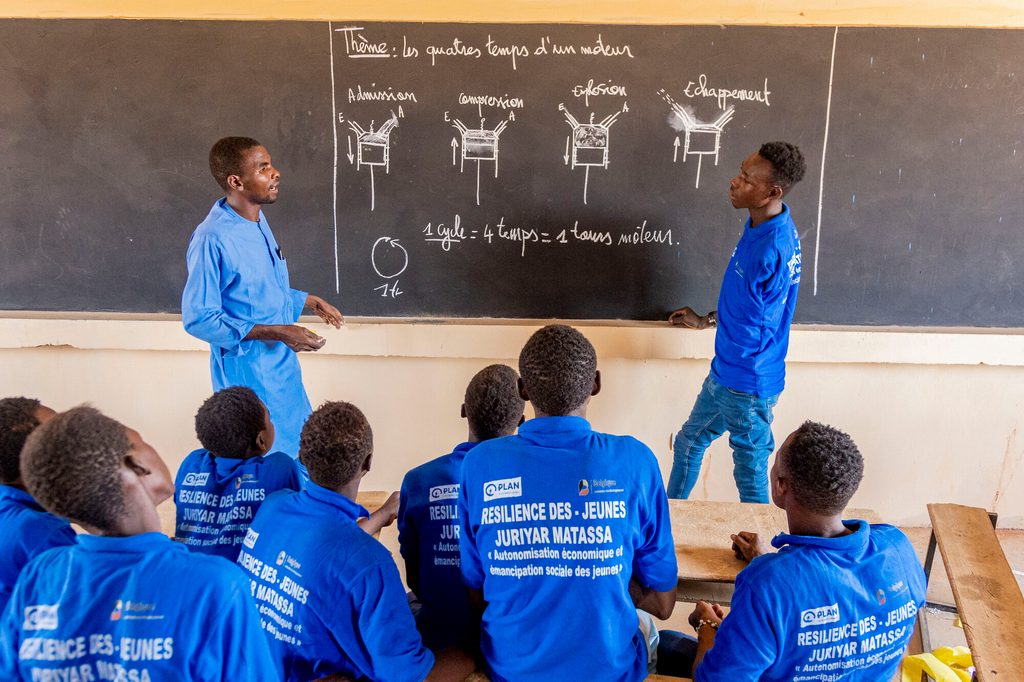
Lawali explains that his training started with theoretical exercises in the classroom where they learnt how a motorbike engine works and safety in the workplace. “Then we moved on to practical work. We have to dismantle all the engine components to detect any faults.”
Despite having one arm, Lawali is able to do most of the repair work himself. “I have my own techniques for working. I can do segmentation, fit clutch plates and repair coils. However, I have some trouble fitting the camshaft so I am helped by my colleagues.
“Today, my dream is to help other children with disabilities by passing on the knowledge I’ve learnt here. To do this, I need tools for segmentation and valve adjustment – in other words, the equipment to continue doing repair work in my village,” concludes Lawali.
About the project
The 18-month youth resilience project launched in January 2022 is supported by the Belgian Development Cooperation. The aim of the project is to create a resilient society in which young people from Maradi region have access to promising economic opportunities and decision-making responsibilities.
